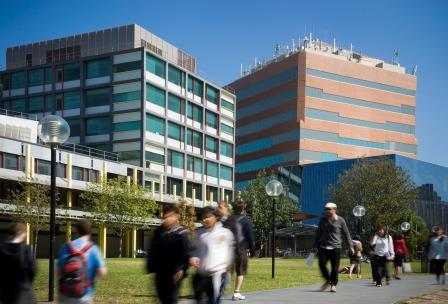Possible mental health relapse? There's a Facebook app for that
Researchers are looking at how social media can be used to prevent relapse in a person living with mental illness.
The world-first pilot study will use a Facebook app to look at changes in a person’s social media interactions to predict when a person living with a mental illness is likely to experience a relapse.

Professor Paul Fitzgerald, Deputy Director of the Monash University Alfred Psychiatry Centre (MAPrc), said social media had the potential to be a life-saving way to prevent relapse for patients with bipolar disorder, a substantial clinical problem.
“Bipolar disorder is unfortunately one of the largest risk factors for attempted suicide,” Professor Fitzgerald said. “Studies show that social media offers potential to monitor various psychiatric conditions; however, until now, there has been no application available to plug-in and draw on the information available.”
Individuals download the application and they then link it with their Facebook profile.
“The app looks for changes in social media interactions, such as postings, likes and friend requests. It also prompts self-assessment by asking the profile owner to rate their mood each day,” Professor Fitzgerald said.
“The app will be developed to the point where it can identify changes in Facebook use that predict impending illness relapse and then alert the patient, their mental health physician, carers or family to take immediate action.”
Professor Fitzgerald said the research team would use the pilot study to develop and refine the algorithm that predicts a relapse.
MAPrc and RMIT University have developed the application with grant support from beyondblue.
Monash School of Psychological Sciences
The Monash School of Psychological Sciences is ranked amongst the best in the world. Their vision is to provide leadership in the modern discipline of psychology by integrating cutting-edge interdisciplinary research that is grounded in psychological science and clinical translation; superior teaching that is transformational in its approach of blending traditional with virtual learning experiences; and by translating our research discoveries to have a lasting impact on societal and health outcomes across the lifespan.
Research is a core priority and the school is engaged in a wide range of cutting-edge activities with a strong focus on behavioural and cognitive neuroscience and mental health translational research. A number of interdisciplinary, state-of-the-art technology platforms allow students and staff to explore brain, cognitive, and behavioural processes at multiple levels of analysis. Combining both laboratory based science and clinical research across psychology and psychiatry, findings are translated into evidence based practice, policy and training. Consider the following degrees:
- Doctor of Philosophy (PhD)
- Doctor of Psychology (Clinical Neuropsychology)
- Doctor of Psychology (Clinical Psychology)
- Master of Biomedical Science
*

































Ask A Question
Ask us about your program of interest, or if you have a question about our services.
CONTACT US TODAY